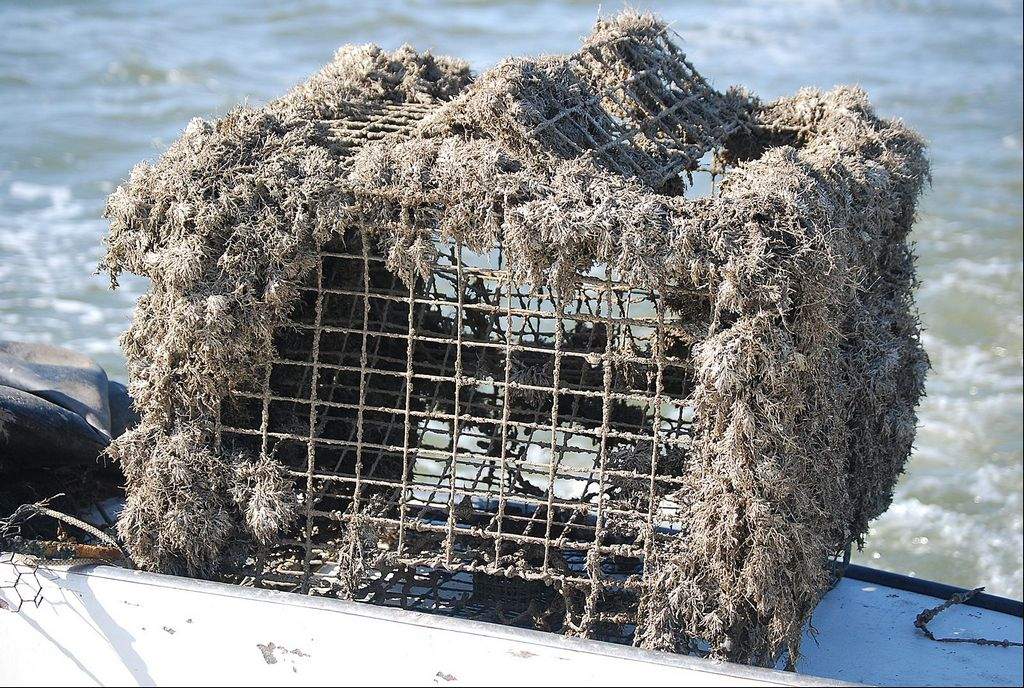Volunteers meet goal to remove 1,000 derelict crab pots from the Barnegat Bay within 2 years

Humboldt State University image.
A conservation organization has met its goal to remove 1,000 derelict crab pots from the Barnegat Bay within two years.
The Conserve Wildlife Foundation of New Jersey (CWF) says its “derelict crab pot teams were out in full force” last weekend, removing 69 from the water and bringing the current total to 1,045. CWF, with state and federal assistance, previously mapped the locations using side scan sonar.
According to CWF, derelict crab pots “ghost fish,” unnecessarily trapping marine life. The program is also helping the organization to understand how much gear is lost annually by recreational and commercial crab fishermen, according to a NOAA release.
Fishing for Energy, a public-private effort that provides commercial fishermen a no-cost solution to recycle old and unusable fishing gear, is partnering with CWF to recycle the materials. Collection bins are situated at the ports in Waretown and Mantoloking.
CWF is also partnering with the Marine Academy of Technology and Environmental Science (MATES), Monmouth University, Stockton University, ReClam the Bay, New Jersey Corporate Wetlands Restoration Partnership, and the recreational and commercial fishing community.
A NOAA grant is funding education and outreach activities on the impacts of derelict crab pots.
“Derelict crab traps can create navigational hazards, damage habitats, and capture various marine species, including harvestable crabs, resulting in lost catch opportunities and financial losses for fishermen,” Nancy Wallace, director of the NOAA Marine Debris Program, said last year.
“We are proud to team up with the Conserve Wildlife Foundation of New Jersey and their partners to reduce the adverse economic and environmental impacts of derelict traps in Barnegat Bay. We also applaud Covanta for its role in converting the derelict gear removed by this project into energy through the Fishing for Energy partnership,” she added.
Fishing for Energy will fund the transportation and disposal of the gear through Covanta’s Energy-from-Waste facility in Union County, where any metal found on the debris will be recycled and the remainder of the traps converted into clean, renewable energy that will power area homes and businesses.
Further south in Atlantic County, more than 1,500 crab pots have been removed from the Mullica River and Great Egg Harbor Bay since 2012, according to Stockton University’s Marine Field Station.
WHYY is your source for fact-based, in-depth journalism and information. As a nonprofit organization, we rely on financial support from readers like you. Please give today.

